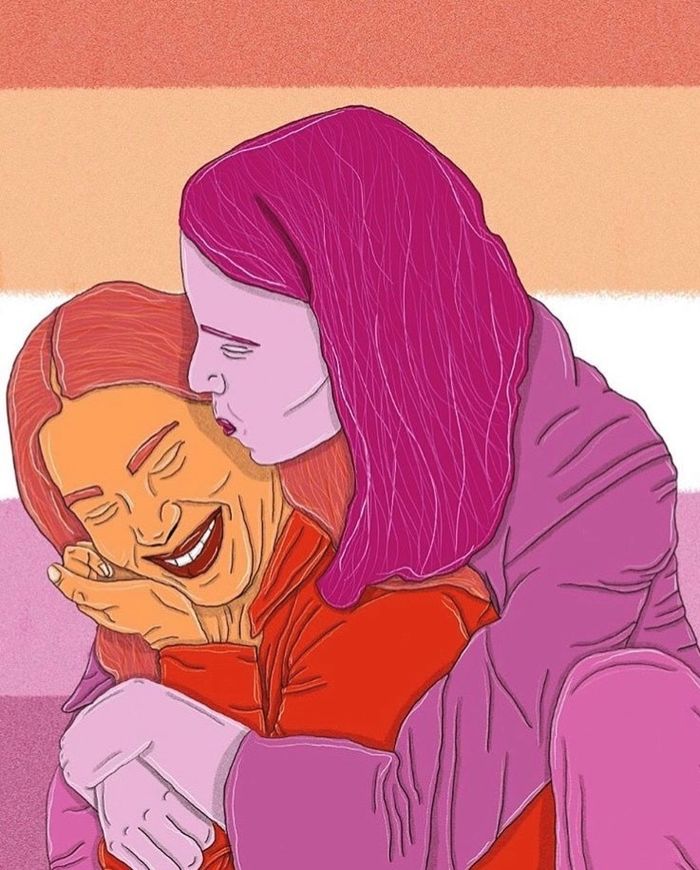Gay iconography and lesbian omission
Spotlighting straight female musicians as gay icons is counterproductive, argues Georgia Goble
Long has the glamorous, strong straight woman been worshipped by gays across the world. From Edith Piaf to Madonna, from Britney to Beyoncé, popular culture has birthed a myriad of women subsequently hailed as gay icons.
But why, must we ask, are these heterosexual women and the heteronormative agenda they push in their music, centre stage at Pride events across the world, enveloped in rainbows and bejewelled with sparkling leotards, for a community that they are not a part of?
Indeed, for the most part, the women upon whose heads the crown of gay iconography is placed often have little or no connection to the LGBT community themselves, least of all their own identification with it. Kylie Minogue, who headlined Brighton Pride last year, has said on her gay icon status “it happened without me knowing it.”
There are a few exceptions to the rule, like bisexual Lady Gaga who has been a fierce advocate for the gay community since the beginning of her career, but it seems that for many fierce female stars, becoming a gay icon is a complete accident, in which they played little part.
"They allow one to dress in an outrageously camp manner [...], whilst simultaneously branding oneself a fierce independent ‘diva’ who will stand up to the haters and homophobes"
So why are the likes of Ariana Grande and Britney Spears gay icons if they never intended to be such? Well, I would argue that it is a precious combination of bold empowerment and hyperfeminity which appeals both to ‘campness’, and to the need for stoicism and potency in the face of hardship, that women and the gay community face alike from the “the wheel of hetero-patriarchy”. In other words, they allow one to dress in an outrageously camp manner and indulge in glittery glamour, whilst simultaneously branding oneself a fierce independent ‘diva’ who will stand up to the haters and homophobes. Cheryl Cole’s iconic song ‘Fight For This Love’, for example, has been appropriated as a battle cry for the LGBT community, with Cole’s military outfit becoming the par excellence of strength and homofeminity.
Some may argue that the gay community should take its allies where they come, and welcome anyone willing to battle for our cause. Yet I can’t help but think that profiting off a community whose struggles you do not share, whilst simultaneously benefiting from a mainstream who accepts you, is a rather problematic phenomenon, especially when there’s a whole array of LGBT artists whose sexuality renders them niche and commercially unviable to the mainstream. It seems glaringly counterproductive that at events designed to give precedence to the underrepresented voices of the gay community, the people we choose to put centre stage, in front of a crowd of thousands of people are… straight.
"To stand up on a Pride stage as a straight woman and sing about men perpetuates the message that gay women are not desirable within the gay community"
Furthermore, undeniable is the fact that these women in pop are incredibly sexualised, in everything from their outfits, like Madonna’s cone bra, to their dance moves, like Beyoncé’s hip thrusts and twerking. Yet, when we talk about the gay iconography of these women, lesbian attraction towards them is so scarcely mentioned, if not entirely omitted from discourse. While we yell ‘yaas queen’ and ‘slay’ and a series of other Drag Race phrases that seek to celebrate extravagant feminine excellence, indulging the ‘campness’ of queer men, it feels shameful to even utter the idea that women may find them attractive. At these events, they seem to talk a lot about ‘love is love’, but when it comes to physical sexuality, especially that of the lesbian variety, a huge amount of shame pervades. Are lesbians supposed to be immune to this flagrant spectacle of female sexuality? Or are these pride performances just incredibly queer-male centric?
At the crux of all of this, then, is there not the homophobic idea that only same-sex adornment is acceptable? That while gay culture allows gay men to ‘stan’ and ‘fangirl’ over straight women, it is rarely mentioned that gay and bi women can do the same?
Perhaps for these female celebs, the gay community offers a welcome refuge from the sexual male gaze, allowing them to feel wholeheartedly embraced for who they are. But it remains that to stand up on a Pride stage as a straight woman and sing about men perpetuates the message that gay women are not desirable within the gay community; that lesbian sexuality should be hidden while female heterosexuality is celebrated.
While I will certainly not be boycotting Kylie Minogue any time soon, in a year where Pride events across the world have been cancelled, now is the time for our community to reflect on what Pride should be in today’s society. Far more than an empty, commodified aesthetic of glitter and rainbows that sees Ariana Grande sing about her ex-boyfriends, Pride should be a genuine celebration of diversity in all its forms.
 Comment / Plastic pubs: the problem with Cambridge alehouses 5 January 2026
Comment / Plastic pubs: the problem with Cambridge alehouses 5 January 2026 News / Uni-linked firms rank among Cambridgeshire’s largest7 January 2026
News / Uni-linked firms rank among Cambridgeshire’s largest7 January 2026 News / New movement ‘Cambridge is Chopped’ launched to fight against hate crime7 January 2026
News / New movement ‘Cambridge is Chopped’ launched to fight against hate crime7 January 2026 News / SU stops offering student discounts8 January 2026
News / SU stops offering student discounts8 January 2026 News / Cambridge businesses concerned infrastructure delays will hurt growth5 January 2026
News / Cambridge businesses concerned infrastructure delays will hurt growth5 January 2026










